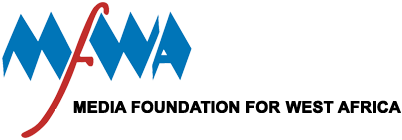Society
Ghana has a population of approximately 28.3 million, spanning a variety of ethnic, linguistic and religious groups. While the official language is English, a number of local dialects is spoken in each of the ten regions, with Asante (14.8%), Ewe (12.7%), and Fante (9.9%) being most prevalent. Ghana’s urban population and rural population are almost at 50:50. The big media and publishing houses are located in the urban regions of Accra, Kumasi, and Tamale, and also print distribution and internet infrastructure does not necessarily reach out to every corner of the country. This together explains why radio is the most used media source: with a huge network of regional and community radios broadcasting in local dialects, it doesn’t face the same language barriers as the – mostly Akan and English – TV stations and newspapers. Plus, it doesn’t face the literacy barrier, with a literacy rate at 76.6%.
Respect for media’s role in democratization threatened by irresponsible journalism
Respect for media is generally high: a 2014 public assessment showed that around 80 percent of the population is of the opinion that media played a crucial role in promoting democracy and success in Ghana. Back then, still almost two third of the population believed in the journalists’ competence and professionalism. The same study done by the National Commission for Education NCCE, however, also showed that more than 55 per cent of Ghanaians want a curb on media freedom.
This might be related to the public condemnation that the media have come under within the past few years, for what can be described as an alarming rate of professional infractions. Hate speech and other abusive expressions appear regularly on radio and newspapers – or at least such statements made by politicians for example are tolerated and rebroadcasted. This was shown by two language studies that the Media Foundation for West Africa carried out - one in 2014 on media ethics, as well as a monitoring in the realm of the 2016 elections.
As one alleged reason for the decline of trust in journalism, the practice of 'Soli' is often mentioned, where journalists demand money from companies or individuals in order to be covered in the media.
Sources
Stats Ghana (2017). Popoulation Projections Summary 2010 to 2016. Accessed 18 July 2017.
Ghana Embassy (n.d.). About Ghana: Population. Accessed 18 July 2017.
Central Intelligence Agency (n.d.). The World Factbook - Africa: Ghana. Accessed 18 July 2017.
Ghana News Agency (2015). More Ghanaians want curbs on media freedom – Report. Accessed 18 July 2017.
Media Foundation For West Africa (2015). Final Ethics Media Monitoring Report 2014. Accessed 17 July 2017.



